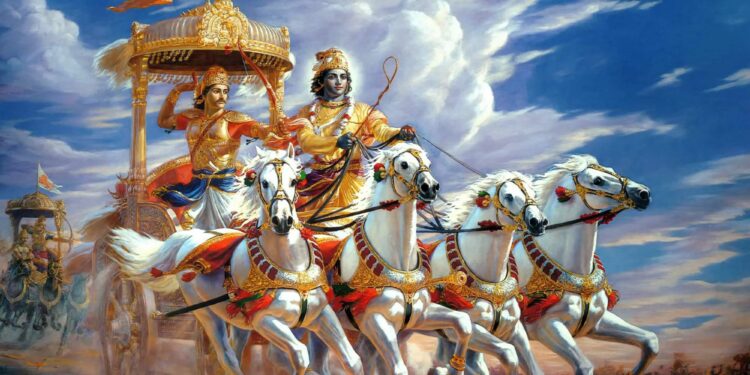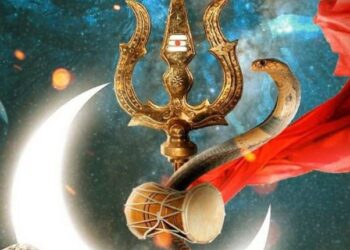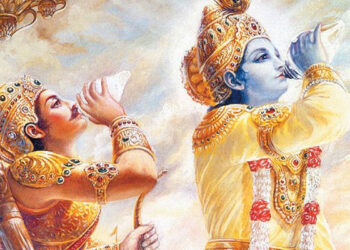Constitutional Position of the Jiva & Demigod Worship
When Sanātana Gosvāmī asked Śrī Caitanya Mahāprabhu about the svarūpa of every living being, the Lord replied that the svarūpa, or constitutional position, of the living being is the rendering of service to the Supreme Personality of Godhead. If we analyze this statement of Lord Caitanya’s, we can easily see that every living being is constantly engaged in rendering service to another living being. A living being serves other living beings in various capacities. By doing so, the living entity enjoys life. The lower animals serve human beings as servants serve their master. A serves B master, B serves C master, and C serves D master and so on. Under these circumstances, we can see that one friend serves another friend, the mother serves the son, the wife serves the husband, the husband serves the wife and so on. If we go on searching in this spirit, it will be seen that there is no exception in the society of living beings to the activity of service. The politician presents his manifesto for the public to convince them of his capacity for service. The voters therefore give the politician their valuable votes, thinking that he will render valuable service to society. The shopkeeper serves the customer, and the artisan serves the capitalist. The capitalist serves the family, and the family serves the state in the terms of the eternal capacity of the eternal living being. In this way we can see that no living being is exempt from rendering service to other living beings, and therefore we can safely conclude that service is the constant companion of the living being and that the rendering of service is the eternal religion of the living being.
Yet man professes to belong to a particular type of faith with reference to particular time and circumstance and thus claims to be a Hindu, Muslim, Christian, Buddhist or an adherent of any other sect. Such designations are non-sanātana-dharma. A Hindu may change his faith to become a Muslim, or a Muslim may change his faith to become a Hindu, or a Christian may change his faith and so on. But in all circumstances the change of religious faith does not affect the eternal occupation of rendering service to others. The Hindu, Muslim or Christian in all circumstances is servant of someone. Thus, to profess a particular type of faith is not to profess one’s sanātana-dharma. The rendering of service is sanātana-dharma.
Factually we are related to the Supreme Lord in service. The Supreme Lord is the supreme enjoyer, and we living entities are His servitors. We are created for His enjoyment, and if we participate in that eternal enjoyment with the Supreme Personality of Godhead, we become happy. We cannot become happy otherwise. It is not possible to be happy independently, just as no one part of the body can be happy without cooperating with the stomach. It is not possible for the living entity to be happy without rendering transcendental loving service unto the Supreme Lord.
In the Bhagavad-gītā, worship of different demigods or rendering service to them is not approved. It is stated in the Seventh Chapter, twentieth verse:
kāmais tais tair hṛta-jñānāḥ
prapadyante ‘nya-devatāḥ
taṁ taṁ niyamam āsthāya
prakṛtyā niyatāḥ svayā
“Those whose intelligence has been stolen by material desires surrender unto demigods and follow the particular rules and regulations of worship according to their own natures.” Here it is plainly said that those who are directed by lust worship the demigods and not the Supreme Lord Kṛṣṇa. When we mention the name Kṛṣṇa, we do not refer to any sectarian name. Kṛṣṇa means the highest pleasure, and it is confirmed that the Supreme Lord is the reservoir or storehouse of all pleasure. We are all hankering after pleasure. Ānanda-mayo ‘bhyāsāt (Vedānta-sūtra 1.1.12). The living entities, like the Lord, are full of consciousness, and they are after happiness. The Lord is perpetually happy, and if the living entities associate with the Lord, cooperate with Him and take part in His association, then they also become happy.



















